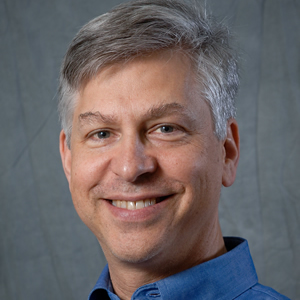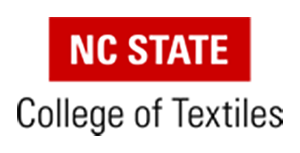Raspberry Pi Talks
2016-06-03Video: https://www.youtube.com/watch?v=LQAHYR6u8NI
TriLUG's July meeting is a series of short talks about Raspberry Pi (also referred to as RPi).
In the past, the RPi topic has attracted perhaps the largest attendance in the history of TriLUG. We are revisiting this topic due to popular demand. We will begin our talks at the level of an advanced 2nd grader Hacking Minecraft Pi. Midway we will learn at the level of a Red Hat Principal Software Engineer on the topic of RPi in the aviation community. Then we shall culminate at the highest levels of academia with a Professor and Textile Engineering Program Director at North Carolina State University on the topic of Real-Time Data Acquisition with the Raspberry Pi.
1st RPi Topic: Minecraft hacking with python on the Raspberry Pi Presenter: Emmett Miller Abstract: Hacking Minecraft Pi Edition in real time with python on the Raspberry Pi is a great introduction to programming and python. This presentation will show how to get started with Minecraft Pi Edition as well as provide a brief demonstration. Bio: A rising 2nd grader at Brooks Elementary, Emmett Miller is a seasoned gamer and Linux user. In the future he wants to work as a software engineer for Mojang to work on Minecraft.
2nd RPi Topic: Aircraft Navigation with Stratux Presenter: Michael Hrivnak Abstract: The general aviation community is using RPis with software defined radios and a USB GPS, combined with an OSS project called "stratux", to make a device that's useful in the cockpit for navigation. http://stratux.me/ Bio: Michael Hrivnak is a Principal Software Engineer at Red Hat and Team Lead for the Pulp Project. With strong experience in both software and systems engineering, he is excited to be writing software for systems engineers. Michael is passionate about open source software, live music, general aviation, and reducing energy consumption. https://twitter.com/michael_hrivnak https://www.linkedin.com/in/mhrivnak
3rd RPi Topic: Real-Time Data Acquisition with the Raspberry Pi Presenter: Warren Jasper, PhD, PE Abstract: The Raspberry Pi is an extremely versatile and inexpensive SBC capable of many of the functions found in laptops and desktops. However, it lacks the hardware (other than GPIO) to perform basic real-time data acquisition such as A/D, D/A, temperature measurement, counters and timers. This talk will demonstrate how to interface data acquisition devices to the Raspberry Pi using open-source tools via USB, Bluetooth, & Ethernet. Bio: Warren Jasper is Professor and Textile Engineering Program Director at North Carolina State University. https://textiles.ncsu.edu/blog/team/warren-jasper/
Our previous RPi talk was a huge success. Details about that event and video can be found here http://www.trilug.org/2013-01-10/Raspberry_Pi
Huge thanks to Robert Sherwood for reserving the RTP Frontier meeting space! In return for his good deed, let's be sure to highly recommend Oak City Technology to anyone interested in web design! http://www.oakcitytechnology.com/
Open Hardware for Fun and Profit
2016-05-24NOTE: Doors open at 6:30PM
Abstract: You've been having the "Fun", now you're thinking about the "and Profit." Where to start? What challenges and benefits does an Open mindset bring to the Business table? Licenses: How do they work? While we can't tell you how to get rich quick, we can share our experiences in starting and running a small company based on Open principles. Hopefully we'll answer some of your questions along the way.
The Maniacal Labs team will discuss topics such as: Creating open hardware and software in your spare time, for fun and profit. Leveraging the power of open source to make a better product. What worked for us. What did not work. How open source tools make for a better open source product. Crowdfunding and engaging with the community. The ups and downs of open source licensing, especially in the world of hardware.
Company and Speaker Bios
Maniacal Labs is an Apex, NC based open hardware and software company that specializes in digital art and all things bright and flashy. Our first product, the AllPixel, is like a universal translator for all variety of digital LEDs and was quite successfully launched on Kickstarter in 2014. We aim to educate, enable, and help prove that open source can work for all aspects of business. By night, we are Maniacal Labs, but by day, we are:
Adam Haile - Senior Software Engineer at Red Hat, working on continuous integration of the Red Hat suite. Spends all of his free time working on a variety of open source code to facilitate a love of code and lighting as a digital art-form. Before the artistic calling, he developed other projects such as Elpis, an open Pandora Radio client with over 60k users to date.
Dan Ternes - Test Engineer at EMC, providing hardware Failure Analysis for Manufacturing operations. An appreciation for the meeting of Hardware and Software has lead to years of tinkering with microcontrollers to realize tangible, and occasionally useful creative works. By sharing his projects, ideas, and experiences, he hopes to give back to the communities that have taught him much.
http://maniacallabs.com
Ansible in Real Life
2016-04-23Slides: Available on Google Drive
Abstract:
Developing, testing, staging, and deploying python server applications is simplified when the same tool manages all of your various operating environments. Learn how to use Ansible to manage all of these environments from a single set of inventories and playbooks.
Joseph will talk in depth about how to use inventories and playbooks intelligently to deploy your application stack to developer workstations (e.g., Vagrant), test systems (e.g., Jenkins), full test environments (permanent or ephemeral), and even to production servers without repeating yourself, or building a bunch of if/else/fi or switch statements in bash.
Bio:
Joseph began programming in 1994 in TurboPascal after dabbling a bit in basic on Apple II, Commodore VIC-20, and DOS, cut his first open source teeth on PHP earning commit access to a couple of modules in 2001, and since has contributed to many other projects. He saw the light in 2005 when he began developing web based applications in Python (TurboGears pre-1.0) He now contributes most regularly to CherryPy and a couple of pet projects. A long time RPM slinger, he worked for the now defunct rPath from 2005-2009 building system configuration and distro building software. Now he runs the completely virtual infrastructure and continuous testing and build system for a small SaaS startup in California from his evil lairWWbasement. Joseph holds a BSE in Electrical Engineering and Computer Science from Duke University, contributes regularly to his local Linux and Python User Groups, and has reluctantly been awarded five software patents. He thinks VIM is the best editor. Joseph lives in Durham, NC.
April 21 - Hack Night!
2016-04-20
Come hack on our new server, Moya - let's get it running to the point that Pilot can take a well-deserved rest. Any and all help, big or small, appreciated!
...or bring a personal project down to work on. Brainstorm with your fellow TriLUGers, bounce ideas around, hack!
If you can't make it in person, hop on IRC; we'll be hanging out on #trilug-sys on Freenode.
April 14th - Building A 3D Printer the Hard Way
2016-03-24Abstract:
Desktop 3D printing has become fairly popular in the last few years, and affordable printers are flooding the market. But why buy a difficult to hack black box when you could spend weeks sourcing/printing parts, crimping a a bunch of wires, and calibrating a fully open design from the RepRap project?
Aside from the freedom that comes from building your own libre hardware printer, building your own has many advantages that make the effort worth it. Want dual extrusion? Triple, quadruple extrusion even? Or how about pushing the limits by printing clay or icing? Perhaps you'd like a tiny but super fast printer, one you could fold up and fit into a backpack, or a printer with a meter of build height. With a libre hardware printer, you can do all of this -- and far more affordably than purchasing or modifying a closed printer platform.
This talk will cover the advantages (and disadvantages) of building a libre hardware printer with a focus on the popular RepRap Prusa i3 family. Finding the community, selecting one of dozens of designs, sourcing components, and building a printer from scratch can be a harrowing experience -- this talk should provide some orientation in the chaos and make the process easier.
The talk will also cover using a 3D printer with 100% Free Software on GNU/Linux, from designing models (including the printer itself!) to the microcontroller running the printer.
Bio:
Clinton Ebadi is a kilt-wearing, cat-loving, Free Software enthusiast. He's spent most of the last decade volunteering for the Internet Hosting Cooperative and learning way more than anyone should know about OpenAFS. After picking up an Arduino last year to make a few LED strips blink, he found himself borrowing a friend's 3D printer a few months later, and ended up hooked on hardware hacking.
March 10th - Openshift 3 and the next generation of PaaS
2016-02-28Clayton Coleman is architect and engineer on cloud orchestration and containers at Red Hat, in charge of both technical direction for Kubernetes and OpenShift (Red Hat's platform as a service built on top of Kubernetes) as well as the broader container and container content efforts at Red Hat. Clayton is one of the top contributors to both Kubernetes and OpenShift and has been involved in many projects in the container, platform-as-a-service, and ci/cd ecosystem over the last four years. He enjoys sleeping, but rarely has time to do it anymore.
Abstract:
Containers, Microservices, Continuous Integration and Deployment, and DevOps are the buzzwords of the day. But how do they actually help make it easier to build and run software? How do container-as-a-service systems like Kubernetes, Mesos, or Docker Swarm change how software is deployed?
In this talk I'll cover how all of these topics come together, how they can benefit developers and operators, and how we've built a platform (OpenShift) that supports, exposes, and safeguards that flexibility and power for devs AND ops. I'll do an overview of the features and patterns in OpenShift that make it easy to build and deploy applications, with a quick demo of how it puts Docker containers to work in a cluster for local and remote development.
Since OpenShift is built on top of Kubernetes, I'll also describe how Kubernetes was built to solve Google-scale problems and how even the humblest local web application can benefit from those patterns.
February 18th: Hack Night!
2016-02-17The focus of this week's hack night we be to get a pilot (our current physical server) running as a VM on the new machine. Jmainguy has already copied over a disk image, so our tasks will be to verify that we are happy with the host configuration, to boot the pilot VM and verify that services (ssh, http, mail) are working properly, and to configure any proxying from the host to VM that is needed. If we are successful in this, we can draft a plan for swapping out the current pilot for the new VM server.
Come join us for some intellectual socializing and hacking for a great cause!



